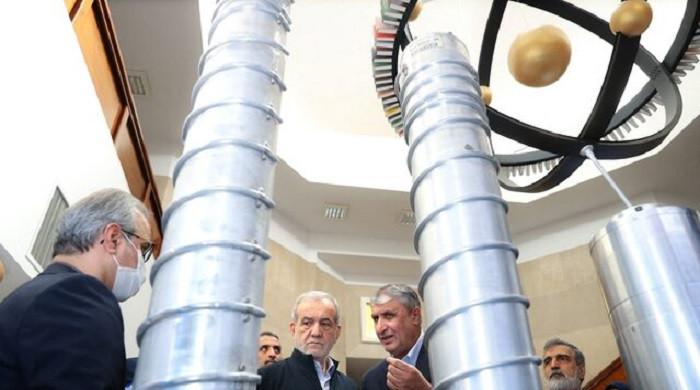Iran said Monday that there would be no new nuclear conversations with the United States if they were conditioned to Tehran abandon their uranium enrichment activities.
Washington and Tehran had participated in several rounds of negotiations that sought to reach an agreement in the nuclear program of the Islamic Republic, but Israel derailed the conversations when he launched a wave of surprise attacks in his regional enemy, playing 12 days of war.
Since the end of hostilities, both Iran and the United States have pointed out the will to return to the table, although Tehran has said that it will not renounce its right to the peaceful use of nuclear energy.
“If negotiations must be conditioned to stop enrichment, such negotiations will not take place,” said Ali Velayati, an advisor to the supreme leader Ayatollah Ali Khamenei, according to the IRNA news agency.
The comments occurred after the spokesman of the Ministry of Foreign Affairs, Esmaeil Baqaei, said that Iran had not set a date for any meeting with the United States.
“For now, the specific date, time, time or location on this matter has not been determined,” Baqaei said on the plans for a meeting between the main diplomat of Iran, Abbas Araghchi and the American envoy Steve Witkoff.
Araghchi and Witkoff had failed to conclude an agreement after five rounds of conversations that began in April and were the highest level contact between the two countries since Washington left a historical nuclear agreement in 2018.
The negotiations mediated by the Odani stopped when Israel launched their surprise attack against the Iranian military and military facilities on June 13, and the United States then joined their ally and made limited attacks.
“We have been serious in diplomacy and the negotiation process, we entered with good faith, but as everyone witnessed, before the sixth round, the Zionist regime, in coordination with the United States, committed military aggression against Iran,” said Baqaei.
Iranian President Masoud Peeshkian said in a statement on Monday that they will “support diplomacy and constructive commitment.”
“We continue to believe that the window for diplomacy remains open, and we will seriously follow this peaceful path.”
Israel and Western nations accuse Iran of pursuing nuclear weapons, a position that Tehran has constantly denied.
While it is the only power of non -nuclear weapons to enrich uranium to the purity of 60 percent, near the necessary level for an ojiva head, the UN atomic energy surveillance patio has said that had no indications that Iran was working to arm their existers.
Sanctions
Israel’s offensive, which said, was aimed at frustrating a nuclear threat of the Islamic Republic, killed nuclear scientists and high -ranking military officers, but also reaching residential areas.
The United States launched its own strike on June 22, reaching the Uranium enrichment center of Iran in Fordo in the province of Qom south of Tehran, as well as in nuclear sites in Isfahan and Natanz.
Iran responded with attacks with missiles and drones attacked to Israeli cities, and attacked an American base in Qatar in retaliation for Washington’s strikes.
The scope of the damage to the nuclear program of the Islamic Republic is still unknown, and Baqaei said that “it was still under investigation.”
Pezeshkian in his last statement, warned about an “even more overwhelming retaliation” to any “new aggression against the Iranian territory.”
Baqaei said Monday that Iran remained in contact with Great Britain, France and Germany, the three European parties of the 2015 nuclear agreement from which the United States later withdrew.
Europeans have threatened to trigger the mechanism “Snapback” of the agreement, which allows the reimposition of UN sanctions in case of non -compliance.
Baqaei said Tehran was “in continuous contact with these three countries”, but added that “it cannot provide an exact date” for the next meeting with them.
“There was no legal, moral or political base” to impose sanctions, according to Baqaei, since Iran was still committed to the 2015 agreement.
He added that such movement would be fulfilled with an “appropriate and proportionate” response, following Iranian threats to leave the global nuclear non -proliferation treaty.
After the United States withdrew from the 2015 agreement with Iran during Donald Trump’s first mandate as president, Tehran began to reverse his commitments to the agreement, which restricted his atomic activities in exchange for relief of sanctions.
“The Islamic Republic of Iran is still considered a member of the JCPOA,” said Baqaei, referring to the 2015 agreement.




